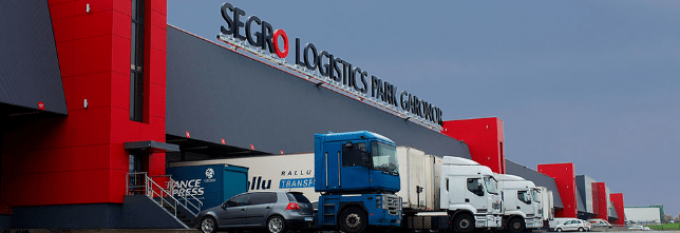K+N looks past Q1 revenue drop to improved margins from restructure
Swiss 3PL Kuehne + Nagel today said there were emerging signs of improving demand, despite ...

Resilient demand for warehousing space was not enough to stop property developer Segro recording a 37.9% year-on-year decline in profits.
The company’s pre-tax profits fell to $531m compared with $856m in 2015.
The main barrier to profit growth was slower growth of property values; the firm’s portfolio growth fell from a $547m increase in 2015 to just $288m last year.
A 65.9% decline in valuation growth was also recorded for properties held in joint ventures: down from $155m to $53m.
“Earnings were also impacted by a net fair value loss on interest rate swaps and other derivatives of $3.2m [2015: $29.5m loss] and a tax charge of $9.6m [2015: $4.6m] of which $7.3m [2015: $2.9m] arises in respect of adjustments, primarily in relation to property valuations and disposals,” added Segro.
Furthermore, profits made on sales of investment properties also dropped 28% to $20.4m year-on-year, with vacant property costs up 64.7% year-on-year to $6.9m.
And while the company described the current level of vacant properties on its books, 5.7%, as “low”, this too had increased18% year-on-year from 4.8%.
Major contract wins from the likes of Amazon did, however, buoy the company’s rental income, which increased 7% year-on-year to $311m, but a 7% rise in administration expenses cost the company $56m.
London, which hostts 37% of operations, continued to perform well, with rental income for the capital up 7% to $95.7m compared with $84.6m a year before.
While European operations performed well, with both Northern and Southern Europe reporting growth and Central Europe remaining stable, income from Thames Valley and National Logistics divisions fell 7% year-on-year to $118.5m.
In terms of development, the company had, what chief executive David Sleath described as, a record year, delivering more that 422,000sqm of warehousing space, 80% of which has been let. It also raised another £325m in equity which has been invested in new developments.
“We have a high-quality pipeline of developments under construction and more under discussion, reflecting the continuing strength of occupier demand for, and short supply of, well located, modern urban and big box warehouses.
“Our business is well positioned, notwithstanding the current degree of political and economic uncertainty. We have had an active start to 2017 and we continue to see opportunities to grow our business through further disciplined investment, matched by a prudent approach to financing,” Mr Sleath added.
Comment on this article